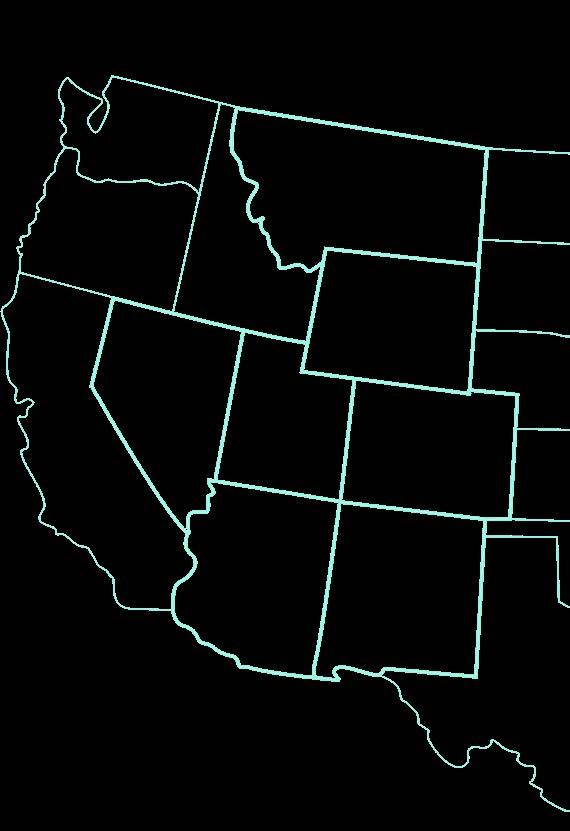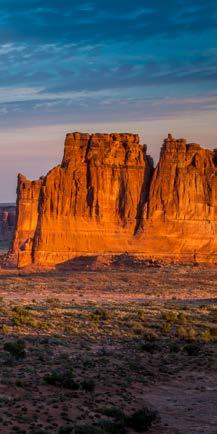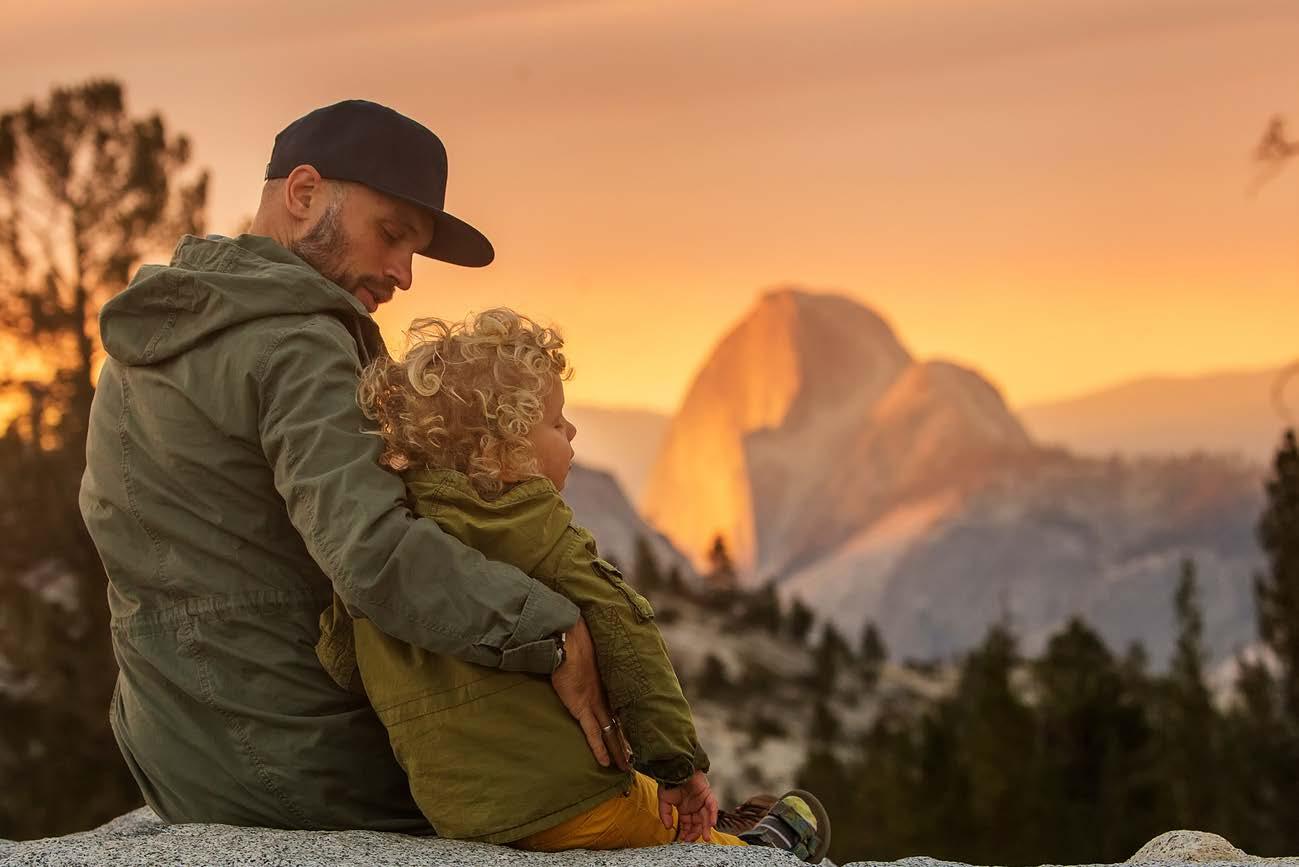
We humbly dedicate this plan and our daily work to the people of the West.

- Western Resource Advocates


We humbly dedicate this plan and our daily work to the people of the West.

- Western Resource Advocates
The West is our home and our passion, and climate change and its impacts are hurting our neighbors, communities, and beloved natural places. Even before the crisis was headline news, WRA was working diligently to decarbonize the Western economy and protect its lands, waters, wildlife, and people from the compounding effects of rising temperatures, drought, and habitat loss.
However, the climate is changing even faster than expected. We must respond boldly and with ambition to prevent its worst impacts. WRA is dedicated to using our unique strength of driving smart, science-based policy to move states and our region to act.
For Home, For Nature has a deep love of the West at its core. It is a plan built on proven strategies and effective action pursued with urgency and focus — giving us the best chance of protecting the West for our neighbors, communities, and wild places.
We can’t do it alone. Climate change is a shared challenge — one that we are meeting with the most ambitious plan and fundraising effort in WRA’s history. Success requires us to dig deep, finding inspiration in our love of the West. With your help, we will raise $50 million to achieve transformational change. Join us in creating a hopeful and sustainable future for our home and for nature. Together, we can make remarkable things happen.
With Gratitude,
Jon Goldin-Dubois


Founded in 1989, WRA fights climate change and its impacts to sustain the environment, economy, and people of the West. We respect the unique needs of diverse communities and partner with them to develop a shared vision for progress – one that advances our communities while protecting biodiversity.
Our team has a 30-plus year history of working where decisions are made, sweating the details, creating evidence-based solutions, and holding decision makers accountable. This on-the-ground work of driving state action, with policymakers and other advocates, advances clean energy, protects air, land, water, and wildlife — and sustains the lives and livelihoods of the West.
While we have evolved over the years, our purpose remains the same: protect the West now and for future generations. Today, WRA works to ensure a future for our region where:
Vibrant communities run on clean energy.
Rivers are thriving even in the face of climate change.
Distinct landscapes are protected, healthy, and accessible.
While every person is affected by climate change, some bear a far higher burden. WRA is engaging as a partner in promoting equitable policy outcomes, and we commit to:
• Reflecting the diversity of the communities in which we work and live in the makeup of our staff and board.
• Contributing to a larger conservation movement that is diverse, equitable, and inclusive of people from all backgrounds.
• Partnering with those that have been disproportionately affected by climate change and past conservation policies to drive equitable change.
We make these commitments fully aware that we are learning and must be open to new and differing perspectives. We come as empathetic listeners, humble learners, creative thinkers, and with a collaborative spirit to be an ally for change that will make our environment and communities healthier, safer, and more resilient for all.

We commit to partnering with all peoples of the West to drive just and equitable climate solutions.
We acknowledge that these lands are the ancestral lands of Indigenous communities, lands that they live in balance with as part of their identity, spirituality, and being. To cultivate more historically just and equitable climate solutions, we commit to partnering with those inherently connected to the land and those most vulnerable to climate change.


Without urgent action to address the dual crises of climate change and biodiversity loss, rising temperatures, drought, and habitat degradation will have profound effects for both people and nature.

The scale of the crisis can make it easy to lose hope and overlook our ability to affect change. However, noteworthy progress is happening.
WRA is effectively addressing complex conservation problems and creating regional impact using our unique strength of driving state action — developing science-based policies, informed by communities and stakeholders, and advocating for and implementing them to achieve measurable results.
In the last five years alone, WRA has secured policies that:
• Reduce greenhouse gas emissions by 76 million tons.
• Allocate $304 million to electrify transportation.
• Protect over 7 million acres of land and outstanding national resource waters.
• Commit over $300 million for land conservation.
We find ourselves at a critical tipping point.
At a critical point
We must accelerate conservation at a pace and scale never seen before.


Our history proves that we can achieve truly meaningful impact through state-based action.

How do we drive state action? WRA engages in four key aspects of policymaking.

WRA combines expertise and experience with research and science to develop policies, legislation, plans, regulations, and rules that address complex problems. Our regional approach integrates the distinct political and cultural landscape of each state and allows us to scale proven strategies, models, and solutions across the West.
WRA works to ensure all voices are heard where decisions are made. We actively partner with communities, Indigenous governments, advocacy groups, and coalitions to develop effective and equitable policies, galvanize support, and unify communities around the most impactful state action.
WRA advocates for the adoption of critical solutions where decisions are made in state and local government — in legislatures, governors' offices, commissions and city councils. Leveraging our policy expertise with government affairs and communications, WRA works closely with decision makers to inform and enact ambitious policies. At the same time, we work to stop efforts that are environmentally harmful and impede progress.
Once a law, policy, plan, or rule is enacted, there is important and detailed work to ensure its effective implementation. WRA works with lawmakers, agencies, utilities, and stakeholders to put laws and policies into action. We defend them in legal forums, assess and analyze their impact, and ensure they d eliver their intended outcomes.
• Decarbonize the Power Sector
• Electrify Transportation & Buildings
• Modernize the Electricity Grid

The region has reduced annual greenhouse gas emissions by at least 120 million tons.
The world’s leading scientists have called for cutting GHG emissions by at least 50% below 2005 levels by 2030. By focusing on transitioning electricity generation from fossil fuels to renewables and other clean sources, using it to power our transportation and buildings, and modernizing the electric grid for efficient delivery, WRA’s strategies will achieve over half of the remaining reductions needed in our region.
Utilities have invested at least $700 million in transportation electrification, with specific and quantifiable investments in low-income and disproportionately impacted communities.
Each of the eight major utilities in WRA's region are committed or required to reduce greenhouse gas emissions.
New state policies are approved that will reduce cumulative greenhouse gas vehicle emissions 7 million tons by 2030 and 170 million tons by 2050.
Each of the eight major utilities in WRA’s region has a program to electrify end uses that are currently served by natural gas.
Regional electricity markets are more organized and have expanded across the West, reducing the costs of integrating renewable energy onto the grid and driving down greenhouse gas emissions.
• Keep Water in Rivers
• Ensure Strong Governance
• Reduce Water Demand

Western states are using 25% less water, and the Colorado and other key rivers are protected.
The Colorado River is in crisis. Decades of overuse and ongoing drought are forcing us to confront the decline of this life-giving river. The situation is now so severe that massive infrastructure on the river is at grave risk. WRA has identified strategic policy interventions that, when advanced together, will decrease water demands and protect key rivers at the scale necessary to avert a crisis.
The revised Interim Guidelines use climate science and inter-state governance to protect the Colorado River Basin.
Cities in Arizona, Colorado, and Utah have avoided 70,000 acre-feet per year of new demands. Repurposed agricultural water keeps 300,000 acre-feet per year in the Colorado River compared to baseline use in 2020.
Water from retiring coal plants is committed to protecting stream health, creating a total savings of 50,000 acre-feet per year by 2030.
At least 250 river miles with high ecosystem value on the Colorado, Green, Gunnison, and Yampa rivers have new protections that secure healthy flows.
• Establish State Goals & Plans
• Secure Conservation Financing & Legal Protections
• Create Equitable Access & Protect Habitat

30% of Western lands in each major ecoregion are protected.
Unparalleled natural landscapes define our region but are increasingly threatened. Natural areas are disappearing at an alarming rate and causing rapid extinction of plants and animals. We must permanently protect our natural heritage and shape responsible development to safeguard these places, the biodiversity that depends on them, and maintain a livable planet for all of us.
Colorado, Nevada, and New Mexico have adopted official goals, plans, and policies to protect 30% of lands without federal action.
Colorado, Nevada, and New Mexico have the necessary conservation financing to realize their land protection goals.
Public land policies, supporting inclusive participation in land management decisions and equitable, sustainable recreation access, are piloted, implemented, and sustained.
Policies ensure that permitted commercial use for energy, grazing, and timber harvesting on protected lands are sustainable.
Communities in Arizona, Montana, Utah, and Wyoming have the political will and advocacy tools to advance goals and plans to protect 30% of lands.
Climate change is a threat multiplier – it drives up temperatures, speeds the evaporation of water, increases habitat loss, and amplifies air pollution. The time is now to address these impacts by joining a community of people who are fighting for a livable climate, thriving wildlife, and beautiful, protected landscapes for all to enjoy. Driving state action is how we will get there.
We need your help to put the how into action. We are doing everything we can to act boldly and to realize our goals.
Already we have:
Reinvested $2.4 million provided by our sister organization from the sale of our office building to achieve critical milestones.
Refreshed our brand and website to inspire others to join in achieving record levels of engagement and fundraising.
Established the WRA Action Fund, a new 501(c)(4) partner organization, to expand advocacy tools and capacity.
Secured initial gifts of $10 million to launch this plan in 2023.


WRA donors can count on us to deliver transformational results. Invest today in proven, effective solutions that will multiply into remarkable impact.
WRA takes big, bold ideas — an economy that runs on carbon-free energy, rivers that flow to the sea, and half of land that is protected and connected — and we figure out the complex path to how. We need your help to put the how into action.

To fulfill the commitment of For Home, For Nature, we have a long way to go. We must raise $50 million by 2025. Join us.

One-time gifts advance work today and can be made online, via check, cash wire, or publicly traded securities.
Sustaining gifts, those that repeat or can be counted on in the future, help WRA plan for and drive sophisticated policymaking needed to solve complex problems.
• Monthly giving increases your impact.
• A multi-year pledge commits a specific amount paid over a fixed period of years, recognizing the commitment needed to advance large-scale change.
Planned gifts make solutions possible long into the future. Donors who include WRA in their wills or estate plans protect the places they love and leave a legacy for future generations.
One-time or multi-year grants from foundations and businesses play a significant role in advancing For Home, For Nature Grants from a donor-advised fund can be used for one-time or multi-year support to WRA.
• Drive powerful state action.
• Fund immediate, on-the-ground, and scalable solutions.
• Foster inclusive engagement with diverse communities and advance equity.
• Energize advocates and create the political will to act.
• Leverage critical federal investments.
• Multiply into significant regional impact.
For more information about making a gift to Western Resource Advocates, please contact:
Theresa Bushman
Vice President of Development and Communications theresa.bushman@westernresources.org
WesternResourceAdvocates.org
2260 Baseline Road, Suite 200, Boulder, CO 80302
Tax ID #84-1113831

To discuss how to leverage your philanthropic impact, complete the form at this QR code.
